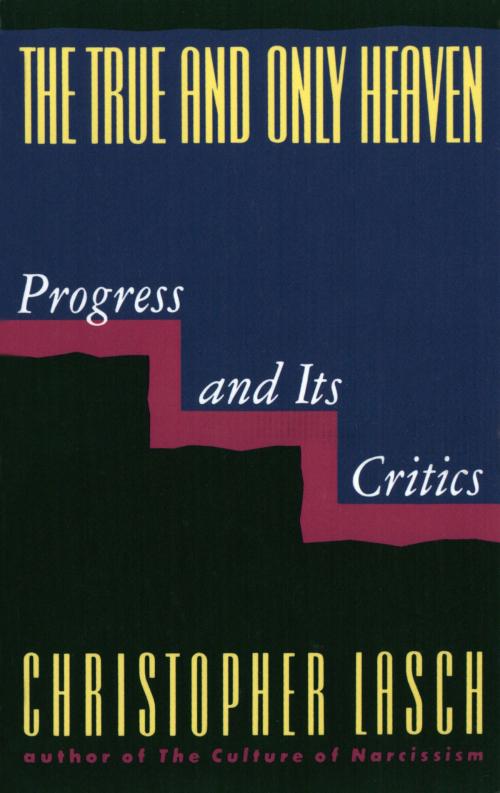The True and Only Heaven: Progress and Its Critics
Nonfiction, Social & Cultural Studies, Political Science| Author: | Christopher Lasch | ISBN: | 9780393348422 |
| Publisher: | W. W. Norton & Company | Publication: | September 17, 1991 |
| Imprint: | W. W. Norton & Company | Language: | English |
| Author: | Christopher Lasch |
| ISBN: | 9780393348422 |
| Publisher: | W. W. Norton & Company |
| Publication: | September 17, 1991 |
| Imprint: | W. W. Norton & Company |
| Language: | English |
"A major and challenging work. . . . Provocative, and certain to be controversial. . . . Will add important new dimension to the continuing debate on the decline of liberalism." —William Julius Wilson, New York Times Book Review
Can we continue to believe in progress? In this sobering analysis of the Western human condition, Christopher Lasch seeks the answer in a history of the struggle between two ideas: one is the idea of progress - an idea driven by the conviction that human desire is insatiable and requires ever larger production forces. Opposing this materialist view is the idea that condemns a boundless appetite for more and better goods and distrusts "improvements" that only feed desire. Tracing the opposition to the idea of progress from Rousseau through Montesquieu to Carlyle, Max Weber and G.D.H. Cole, Lasch finds much that is desirable in a turn toward moral conservatism, toward a lower-middle-class culture that features egalitarianism, workmanship and loyalty, and recognizes the danger of resentment of the material goods of others.
"A major and challenging work. . . . Provocative, and certain to be controversial. . . . Will add important new dimension to the continuing debate on the decline of liberalism." —William Julius Wilson, New York Times Book Review
Can we continue to believe in progress? In this sobering analysis of the Western human condition, Christopher Lasch seeks the answer in a history of the struggle between two ideas: one is the idea of progress - an idea driven by the conviction that human desire is insatiable and requires ever larger production forces. Opposing this materialist view is the idea that condemns a boundless appetite for more and better goods and distrusts "improvements" that only feed desire. Tracing the opposition to the idea of progress from Rousseau through Montesquieu to Carlyle, Max Weber and G.D.H. Cole, Lasch finds much that is desirable in a turn toward moral conservatism, toward a lower-middle-class culture that features egalitarianism, workmanship and loyalty, and recognizes the danger of resentment of the material goods of others.















